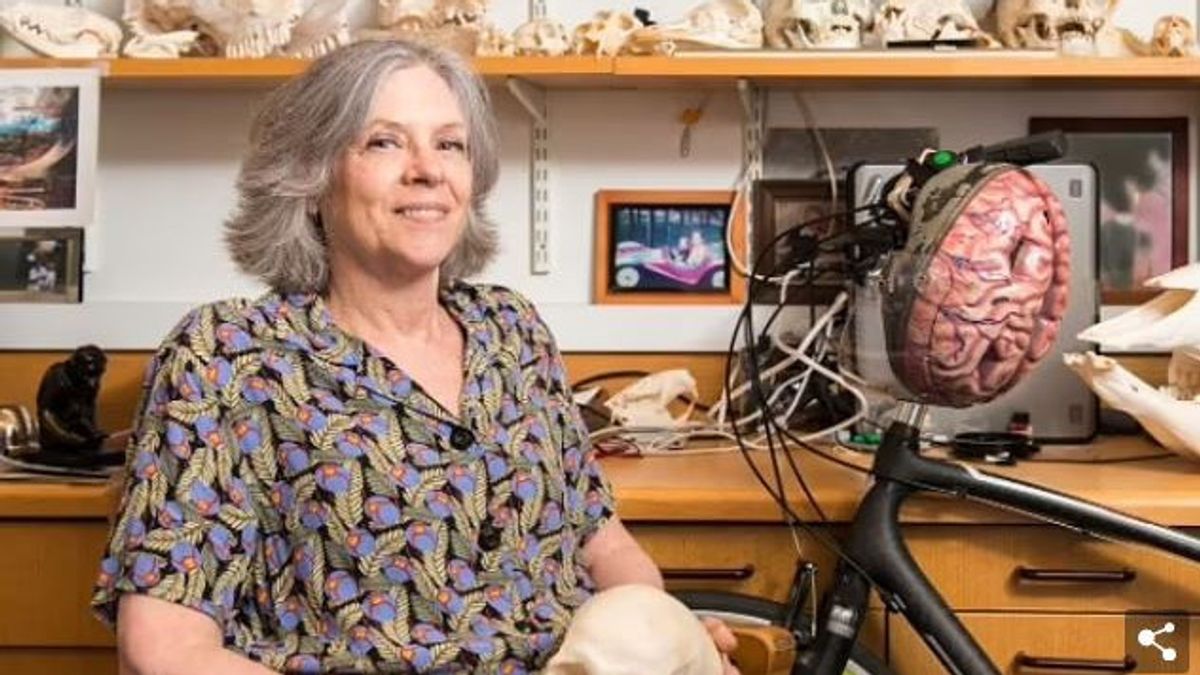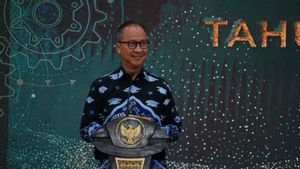JAKARTA A neurologist from Harvard University has been condemned by the public because of research involving a newly born monkey cub from his mother. He tore and sewed the monkey's eyelid to study visual impairment.
Penelitian, yang dilakukan pada tahun 2016 dan 2020, adalah bagian dari pekerjaan Margaret Livingstone yang katanya dibangun di atas pengetahuan pemenang Taze Nobel, untuk 'help menyelamatkan juta anak dari kehilangan penglihatan.'
Scientists, active animal rights and the public refer to the practice as unethical and cruel. They even demanded that Livingstone studies be removed from journals and accredited laboratories at Harvard University should be closed.
Livingstone declined to comment on this issue when asked by DailyMail.com, but shared a public statement in which he criticized the attack. He stated that his lab 'has not closedits since two isolated cases in 2016. He also stated that the method has remained a routine protocol in all research laboratories studying visual impairment.
Imagine having your EYES SEWN SHUT by experimenters. 😢This was Britches' miserable life before he was rescued.pic.twitter.com/zzxxp1iUMC
— PETA UK (@PETAUK) October 25, 2022
University of St. Andrews primate expert Catherine Hobaiter, who told Science.org that she was horrified by this method. She, sent a letter to the Prosiding National Academy of Sciences (PNAS) signed by more than 250 animal behavioral researchers, graduate students, and postdocs, who asked her to withdraw Livingstone's latest publication entitled 'Intriguing Mother's Love.' (Triggers for Mother Love)
The study brought back memories of baby monkey Britches who were rescued from the University of California,
The monkey was transferred along with 700 animals in the attack at the agency, but members of the Animal Liberation Front found Britches had a sonar device attached to his head that let go of a high-tuned punctuation every few minutes and a bandage wrapped around his eye. When the braids were removed, animal supporters found his eyes had been sewn and closed.
00 Roe, a former experimental psychologist who studies brain development in children and now serves as head of science advances and outreach at PETA, sent a letter to Harvard and two NIH agencies.
Roe believes the harm posed in animals is "more than a potential benefit to human or animal health."
The letter continues to highlight Livingstone's method of carrying out surgery on babies' so that the head pole can be attached to their skull or eye scroll 3 and/or some intracranial electrode arrays can be implanted.
"For some experiments, their heads were mobilized using helmets, chin straps, and bite bars, and in some experiments monkeys were killed and dissected," he wrote.
In Livingstone's statement, however, he noted that in 2016 they performed two reversible eyeLId closure procedures on apes using soluble stitches, as described in peer-reviewed literature.
"This procedure is also carried out on human children and babies with certain eye tumors or to treat invasive eye infections," he said. Child surgery experts give these children anesthesia and pain relievers.
"We did the same with our baby monkeys to make sure they didn't experience pain," added Livingstone.
He also put forward the fact that the 2016 work builds on the science of the Nobel Prize winner that has been described as a quantum leap in our understanding of how the brain'sees'.
The 2019 Livingstone Study 'Proto-organization of body maps on newborn apes' reads: 'Two monkeys that are kept by hand (M5 and M6) raised in conditions of visual form shortage through eyewear tailoring for the first year. The experiment was carried out on these 2 monkeys after theality was reopened.
This study and the 2020 paper also sparked outrage on Twitter, as many users called for the Livingstone lab at Harvard to close.
The English, Chinese, Japanese, Arabic, and French versions are automatically generated by the AI. So there may still be inaccuracies in translating, please always see Indonesian as our main language. (system supported by DigitalSiber.id)












